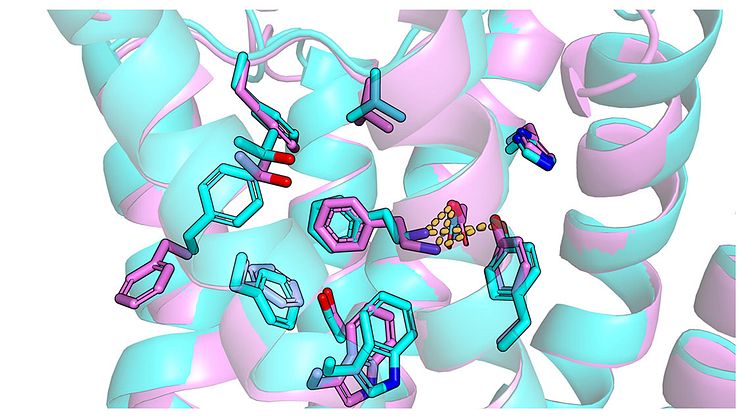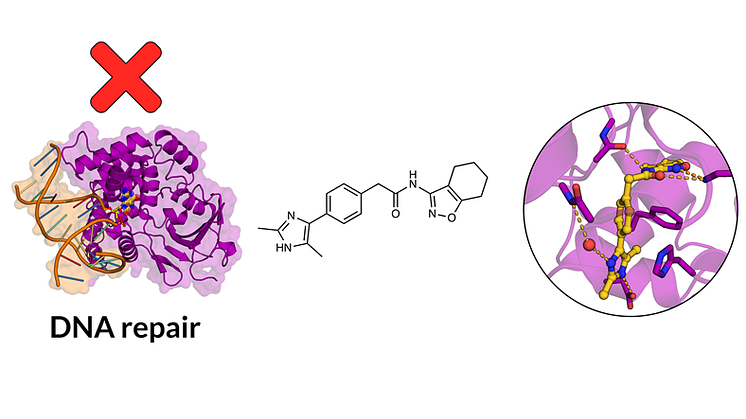
Press release -
AI can speed up drug development
Artificial intelligence (AI) can help identify molecules that could serve as new drugs for mental health disorders. AI can be used to predict the three-dimensional structures of important receptors and thereby speed up the development of potential drugs. This is the result of a new study from Uppsala University published in Science Advances.
In drug development, experimental methods are often used to determine the three-dimensional structures of target proteins and to understand how molecules bind to them. This information is needed to design drug molecules efficiently. However, the process to determine structures can be demanding, meaning this strategy cannot always be used.
Thanks to the development of AI methods, the structures of proteins can now be predicted with higher accuracy than previously.
In the study, researchers at Uppsala University used AI to create a model of the unknown three-dimensional structure of a receptor. In this case the TAAR1 receptor, which is an interesting target protein for the development of drugs for mental health disorders. Drug molecules that activate TAAR1 have shown promising results in the treatment of schizophrenia and depression.
Using supercomputers, the researchers then searched chemical libraries containing millions of molecules to find those that best fitted the model. Molecules predicted to bind to the receptor were then tested in experiments by research colleagues at Karolinska Institutet. An unexpectedly large number of the molecules activated TAAR1, and one of the most potent also showed promising effects in animal experiments.
During the final stage of the study, experimental structures for TAAR1 suddenly became available and the researchers were able to compare them with the AI models.
“The accuracy of the structures generated with AI was astonishing – I couldn't believe it. The results also show that modelling with AI is significantly better than traditional methods. We can now use the same strategy for receptors that we previously could only dream of working with,” explains Jens Carlsson, who led Uppsala University’s part of the study.
The study was primarily funded by the Knut and Alice Wallenberg Foundation.
Publication:
Díaz-Holguín et al., AlphaFold accelerated discovery of psychotropic agonists targeting the trace amine–associated receptor 1. Science Advances 10, eadn1524 (2024)
Contact details:
Jens Carlsson, Professor at the Department of Cell and Molecular Biology at Uppsala University and SciLifeLab, jens.carlsson@icm.uu.se, mobile: +46 72 227 79 76.
https://www.uu.se/en/department/cell-and-molecular-biology/research/computational-biology-and-bioinformatics/carlsson-lab
Topics
Categories
Founded in 1477, Uppsala University is the oldest university in Sweden. With more than 50,000 students and 7,500 employees in Uppsala and Visby, we are a broad university with research in social sciences, humanities, technology, natural sciences, medicine and pharmacology. Our mission is to conduct education and research of the highest quality and relevance to society on a long-term basis. Uppsala University is regularly ranked among the world’s top universities. www.uu.se


